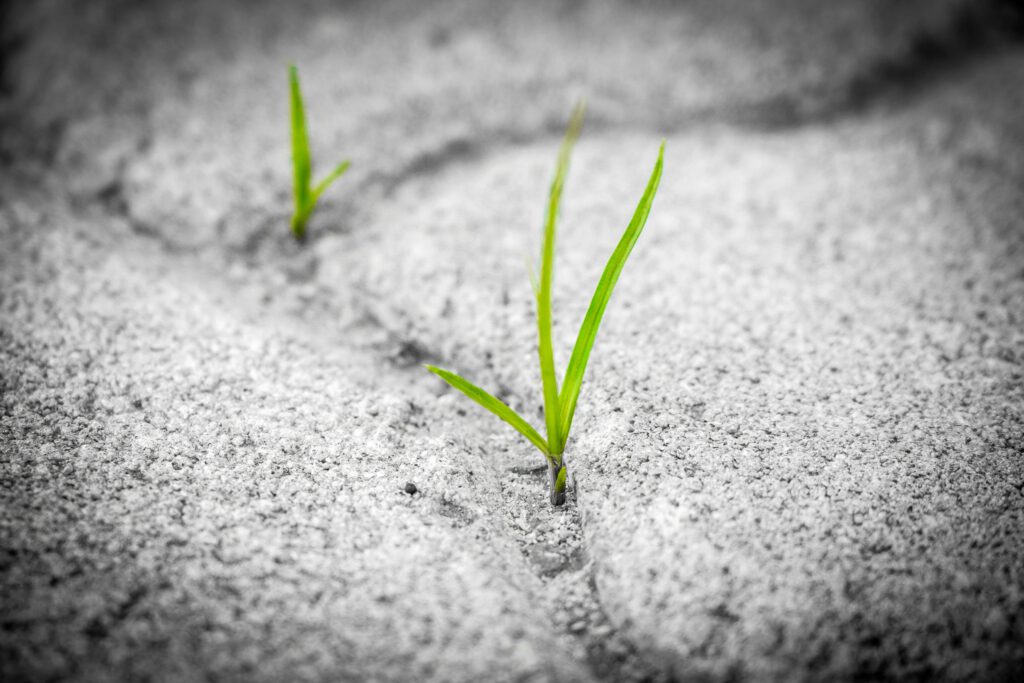The Ways We Work: Part 3, Working Solutions to Unsustainable Academia

This post by Rachel Webb Jekanowski, Anne Pasek, and Kate Elliott (with additional insights and contributions from Kaitlin Blanchard) is the final post in a three-part series on the relationship between climate change and university working cultures.
So far in this series we’ve discussed the role extractive energy plays in the contemporary academy, both in the fossil energy undergirding academic finances and research methods, as well as the labour and tuition structures that hold the institution (unequally) together. In this final post, we discuss how caring for ourselves, and for each other’s working conditions, points the way to both our demands and our methods.
Building “sustainable academia” means that we need to find a way to reallocate our energies, to rebuild our connections to each other as fellow intellectual workers and the places in which we live. We want a future academy where our work is less exhausting—both for ourselves as workers and for the wider cultural and environmental contexts in which we work.
Part of this can be accomplished by slowing down. The neoliberal university demands “high productivity in compressed time frames,” burning out workers (and fossil fuels) along the way (Mountz et al. 2015: 1236). Slowing down, building collaborative networks of labour, writing, and care, and engaging in collective action: these practices are time-consuming and require solidarity from tenured and white scholars. They’re also the right tools for the job. By fighting for better working conditions, with more inclusive and restorative expectations around mobility, speed, and collaboration, we are also actively pushing to disassemble the extractivist capitalist system which created the current climate crisis.
If you’re reading this (and Parts 1 and 2 of this series), you no doubt share our commitment to imagining more sustainable futures. But how to bring this future into being? Rather than ending with vague assertions that “another world is possible” (which, of course, it is), we have collected some practical actions or steps that can help get us there.
We’ve ordered these from smaller actions to larger, institutional ones:
- Speak up. Use your training as environmental and energy historians, and experiences in the classroom, to push for systems change. This might include writing op-eds for your local newspapers, co-authoring a white paper, reaching out to local radio and television stations about doing an interview, calling your political representatives about climate legislation, or even running for local council.
- Incorporate material about environmental justice and environmental racism in your courses, especially in contexts where discussions of race and climate are typically neglected. Some useful starting points for teaching at the undergraduate level include Environmental History Now’s “Climate Justice is Racial Justice” reading list, Anita Girvan and Rina Garcia Chua’s issue of The Goose on race and racism in the environmental humanities and arts, and How to Save a Planet’s podcast episode on Black Lives Matter and the Climate. Students are much more likely to develop a carbon-consciousness and take it with them to the next stages of their lives when climate issues are integrated across university curricula. Teaching Climate Change in the Humanities and Daniel Macfarlane’s piece in NiCHE offer two entry points into designing integrated climate curricula.
- Integrate carbon analyses into your research and considerations of how you conduct your work. A carbon analysis attempts to quantify the carbon emissions of a research activity, like an archival visit or book project. It can include transportation emissions, food, electricity needed to power one’s computer, printing costs, and other energy inputs. As Diana Valencia shows in a carbon analysis of her environmental history of food security in rural Columbian communities, this tool can raise awareness of the real environmental consequences of a research project, regardless of a scholar’s activist intentions. However, as Valencia discovered, carbon offsets are not adequate replacements for flying less. Stephanie LeMenager’s appendix “Life Cycle Assessment of a Conventional Academic Print-Book” in Living Oil offers another example for how researchers might account for the energy consumption of a project. Carbon footprinting is, of course, an imperfect tool with a fraught history of its own. Nevertheless, analyzing the carbon ethics of your research is a useful part of a wider examination of the collective energy politics of academia.
- Work collaboratively. We know that academia can be a lonely affair and current metrics of success privilege solo authorship like monographs. Shifting from solo research projects to collaborative forms of research and teaching can help us to do more meaningful and intersectional work, while applying pressure to academic norms of authorship, prestige, and tenure. This might include collaborations across disciplinary boundaries, languages, and skill-sets to recognize different types of expertise and uplift precariously-employed or marginalized scholars. Co-authorship is also a powerful tool for thinking alongside each other, redistributing opportunities and workloads, and retooling the notion of scholarship to include contributions from folks outside the academy.
- Reduce how much you fly. Take the train or bus when you can, carpool with colleagues, and join and host virtual and hybrid conferences.
- Join institutional efforts to make flying less a collective norm. Add your voice to the organizing committee for your professional association and lobby to hold more events remotely or in regional “hub and spoke” models. How might tenure and promotion at your university take into account lower-carbon forms of research? If your university is developing a new strategic plan, how can transportation, accessibility, and climate justice be built into it? Also keep in mind who is being asked to give up high-carbon modes of transportation; international students and workers far away from their communities face a different calculus than those who have family and friends close by or those who live in countries with well developed public transit networks. Similarly, senior scholars have less to lose than grad students in making it to an in-person gathering.
- Join grassroots organizations within your local communities already doing intersectional climate justice work. This might include campaigns for affordable housing and public transit, mutual aid societies, organizations working to alleviate food insecurity, local chapters of Black Lives Matter, Indigenous sovereignty movements, and campaigns for migrant rights. Local chapters of global movements like Fridays for Future can be a good place to start, but organizations led by front-line communities and communities-of-colour have more experience with grassroots issues and needs.
- Re-allocate academic research funding to support the work of activists, community organizers, and artists fighting climate collapse. This could include partnering with community organizations on grant applications to fund student assistants or data-gathering to meet community-identified needs, allocating discretionary research funds to student groups undertaking climate action projects, hiring disabled, trans, international, and students-of-color as research assistants and paid consultants, and serving as advocates in institutional contexts.
- Support divestment and decarbonization campaigns at your universities and other workplaces. Divestment erodes energy companies’ social license to operate and inform policy while decoupling institutions’ finances from fossil fuels. Although we recognize this isn’t a complete solution (replacing carbon emissions with another energy source like hydroelectricity will not dislodge the university’s extractivist core), it’s an important step towards a post-oil future.
- Pressure universities and funding bodies to count and consider carbon emissions in their operations analytics and grant evaluations. To transition to a post-oil (and post-extractivist) university, institutions need to appoint sustainability officers to measure carbon emissions and use this data to inform policy decisions (and potentially also ethics approvals). Such mechanisms can help to identify the intersections of research and the climate crisis, while fundamentally changing how (and which) research is valued.
- Engage in collective action! Organize yourselves, students, and colleagues through your student and faculty union if you have one. If you don’t, start a union drive. Academic-led groups focused on racial and climate justice like Historians for Future, SCALE (Sectoral Climate Arts Leadership for the Emergency), and Academics for Black Survival and Wellness, as well as university organizations like Climate Action at the University of Alberta and Memorial University’s Climate Action Coalition, offer some local and international avenues for doing this work. Join intra-university efforts to decouple oil from the education sector, such as Race to Zero for Universities and Colleges. Feel free to reach out if you’re interested in undertaking something like this in your home university.
Of course, all of these actions require more work on our part. And most of us are already over-extended, precariously-employed, and faced with heavier care work and service requests because of the pandemic. How can scholars integrate this seemingly “extra” work? Disability scholars argue that the labour required to make workplaces and scholarship accessible isn’t really extra work; rather, it’s work that remains unfinished.1 Making academia accessible and sustainable is completing the work.
This requires listening, thought, and “covens of care.” It requires building supportive communities and sustainable collaborations. It requires widening our networks and coalitions, so more people are willing to carry this load and lend a hand when we all inevitably take the breaks we need to rest and rejuvenate. It means reconsidering the temporalities of work, perhaps by shifting to a four-day work week. It means radically reconsidering the university as it now stands: remaking its toxic work cultures and integrating practices of “slow,” low-carbon, and more accountable research; as well as developing more collaborative research partnerships with the communities we study and work in. It means challenging the extractive practices of the university as its core.
While this work is daunting, we have so much to gain: a livable planet, more caring and accessible forms of work, and more just energy systems to power our world. We hope these calls to action inspire even more forms of sustainable practice than we can even imagine here. We look forward to working alongside you.
1 Thank you to Kaitlin Blanchard for these insights on the experiences of disabled academics and for our many conversations about accessibility and equity within the academy – Rachel.
References
“Black Lives Matter.” Black Lives Matter. Accessed December 2, 2021. https://blacklivesmatter.com.
“Climate Action at the University of Alberta.” Climate Action Coalition at the University of Alberta. Accessed December 6, 2021. https://caua.ca/.
Corner, Adam, Chris Shaw, and Jamie Clarke. Principles for effective communication and public engagement on climate change: A Handbook for IPCC authors. Oxford: Climate Outreach, 2018. https://www.ipcc.ch/site/assets/uploads/2017/08/Climate-Outreach-IPCC-communications-handbook.pdf.
EHN Editorial Team. “Climate Justice is Racial Justice: A Reading List.” Environmental History Now (June 11, 2020). https://envhistnow.com/2020/06/11/climate-justice-is-racial-justice-a-reading-list/.
“Fridays For Future.” Fridays For Future. Accessed December 5, 2021. https://fridaysforfuture.org/.
Gewin, Virginia. “Pandemic Burnout is Rampant in Academia.” Nature, 591 (March 18, 2021): 489-491. https://media.nature.com/original/magazine-assets/d41586-021-00663-2/d41586-021-00663-2.pdf.
Girvan, Anita, and Rina Garcia Chua. “e-Race-sures: Resistance, Community Building, and a Pause in the Environmental Humanities and Arts.” The Goose 19, no. 1, article 2 (2021). https://scholars.wlu.ca/thegoose/vol19/iss1/2.
Hamraie, Aimi. “Solidarity Chat 9: Max Liboiron.” Critical Design Lab. (June 17, 2020). https://www.mapping-access.com/podcast/2020/6/10/solidarity-chat-9-max-liboiron.
“Historians for Future are joining the environmental movement.” Historians for Future Blog. Accessed December 5, 2021. https://historiansforfuture.org/.
How to Save a Planet Podcast. “Black Lives Matter and the Climate.” (September 24, 2020). https://gimletmedia.com/shows/howtosaveaplanet/39habgl.
Kaufman, Mark. “The Carbon Footprint Sham.” Mashable. Accessed December 2, 2021. https://mashable.com/feature/carbon-footprint-pr-campaign-sham.
LeMenager, Stephanie. Living Oil: Petroleum Culture in the American Century. Oxford: Oxford University Press, 2014.
Macfarlane, Daniel. “The Climate Crisis and the Canadian Classroom.” Network in Canadian History and Environment (September 21, 2021). https://niche-canada.org/2021/09/21/the-climate-crisis-and-the-canadian-classroom/.
“Memorial University Climate Action Coalition.” Memorial University Climate Action Coalition. https://muncac.ca/.
Mountz, Alison, Anne Bonds, Becky Mansfield, Jenna Loyd, Jennifer Hyndman, Margaret Walton-Roberts, Ranu Basu, Risa Whitson, Roberta Hawkins, Trina Hamilton, and Winifred Curran. “For Slow Scholarship: A Feminist Politics of Resistance through Collective Action in the Neoliberal University.” ACME: An International Journal for Critical Geographies 14, no. 4 (2015): 1235-59. https://www.acme-journal.org/index.php/acme/article/view/1058.
Perpinyà, Max Bautista. “Online conferences won’t do it. Instead of ‘sustainable’ academic history, we need engaged historians working less and collaborating with activists.” Historians for Future Blog (November 19, 2021). https://historiansforfuture.org/online-conferences-wont-do-it/.
Precarity Lab. “Covens of Care.” Technoprecarious. (November 24, 2020). https://goldsmithspress.pubpub.org/pub/zqd2tjdg/release/1.
SCALE – Sectoral Climate Arts Leadership for the Emergency / LeSAUT – Leadership Sectoriel des Arts pour l’Urgence de la Transition écologique. Accessed December 6, 2021. https://scale-lesaut.ca/.
“Universities and Colleges of the world: sign up to the Race to Zero, a global initiative for a Zero Carbon World.” Race to Zero, EAUC – The Alliance for Sustainability Leadership in Education. Accessed December 6, 2021. https://www.educationracetozero.org/home.
Valencia, Diana M. “The Carbon Footprint of Environmental Research: A Personal Dilemma.” Environmental History Now (October 24, 2019). https://envhistnow.com/2019/10/24/the-carbon-footprint-of-environmental-research-a-personal-dilemma/.





